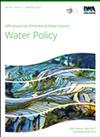利用MODFLOW在孟加拉国干旱的Barind地区评估不同作物轮作对地下水位的影响
IF 1.8
4区 环境科学与生态学
Q4 WATER RESOURCES
引用次数: 1
摘要
干旱的巴林德地区地下水使用量增加导致地下水位下降,这引发了人们对可持续性的担忧。在本研究中,利用MODFLOW模型模拟了孟加拉国干旱地区Barind不同作物轮作下的地下水位(WT)情景,以研究作物轮作对地下水位的影响。研究的作物轮作和补给条件为:在现有种植模式下;目前100、30、50%的米粒被澳米取代;现有的种植模式,但回灌量减少到目前的90%和80%。校准的MODFLOW模型用于开发小波变换场景。根据建模结果,随着Aus和Rabi(30,50和100%)逐渐取代Boro, WT的衰落将减轻,因此WT的情况将得到改善。模拟的WT情景将有助于决策者制定针对该地区地下水长期可持续性的种植模式或地下水采取量的政策。本文章由计算机程序翻译,如有差异,请以英文原文为准。
Assessing the impacts of different crop rotations on groundwater level using MODFLOW in a dry, Barind area of Bangladesh
The lowering of the groundwater table caused by increased groundwater use in the dry, Barind region has prompted sustainability concerns. In this study, water-table (WT) scenarios were simulated by the MODFLOW model under different crop rotations in Barind, a dry region of Bangladesh, to examine the effects of crop rotations on groundwater level. The studied crop rotations and recharge conditions were: with existing cropping pattern; 100, 30 and 50% of present Boro rice is replaced by Aus rice; existing cropping pattern, but with reduced recharge to 90 and 80% of present recharge. A calibrated MODFLOW model was used to develop WT scenarios. According to the modeling results, the declination of WT will be lessened and the situation with regard to WT will therefore be improved with the gradual substitution of Boro by Aus and Rabi (30, 50 and 100%). The simulated WT scenario will be useful for policymakers to set policies about cropping patterns or groundwater withdrawal amounts targeting the area's long-term sustainability of groundwater.
求助全文
通过发布文献求助,成功后即可免费获取论文全文。
去求助
来源期刊

Water Policy
环境科学-水资源
CiteScore
3.10
自引率
12.50%
发文量
81
审稿时长
6-12 weeks
期刊介绍:
Water Policy will publish reviews, research papers and progress reports in, among others, the following areas: financial, diplomatic, organizational, legal, administrative and research; organized by country, region or river basin. Water Policy also publishes reviews of books and grey literature.
 求助内容:
求助内容: 应助结果提醒方式:
应助结果提醒方式:


